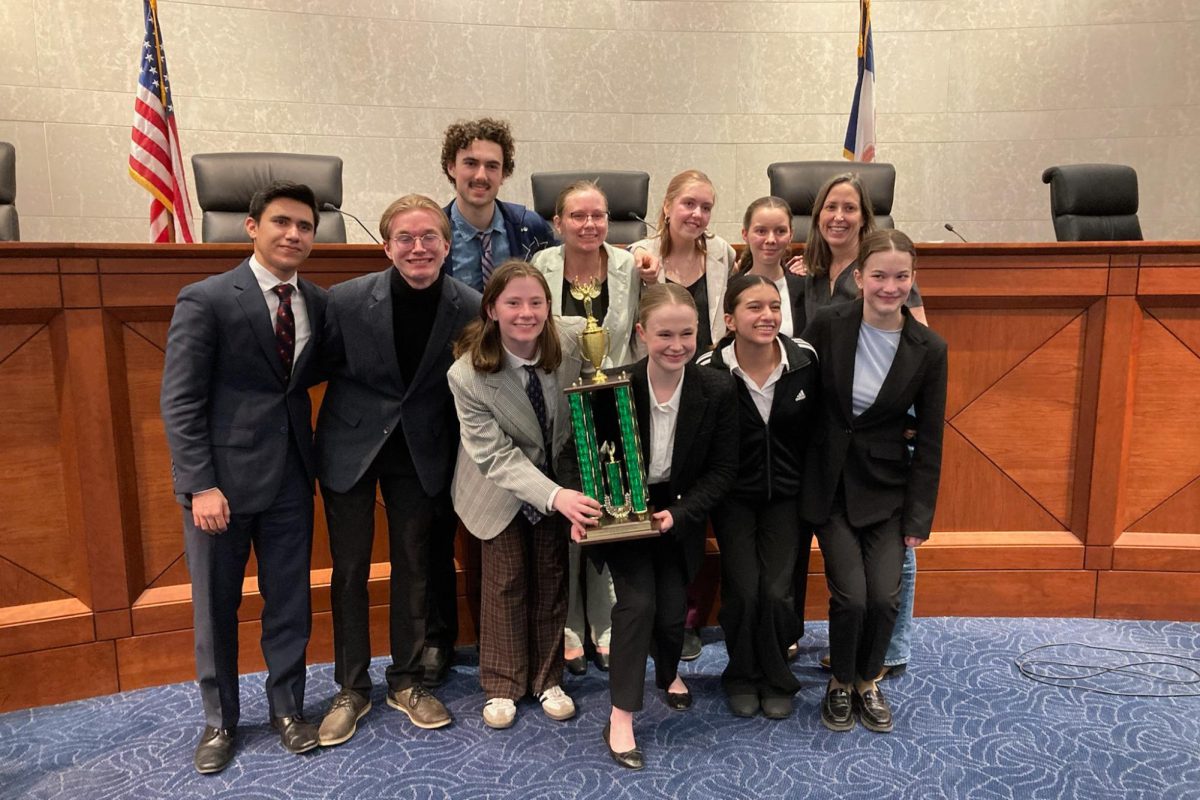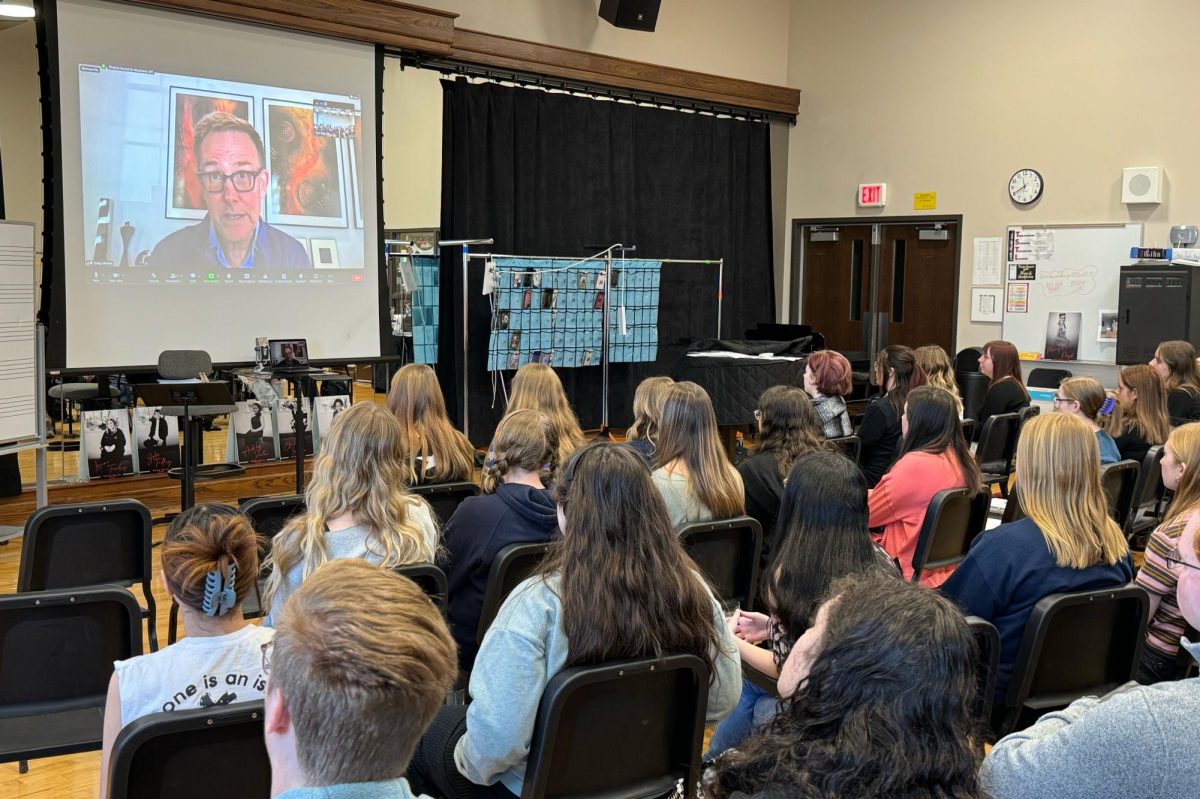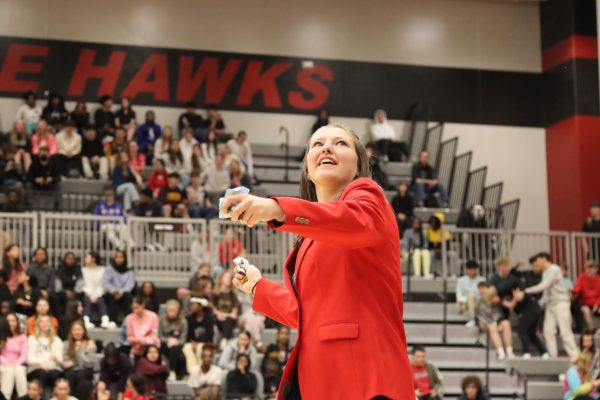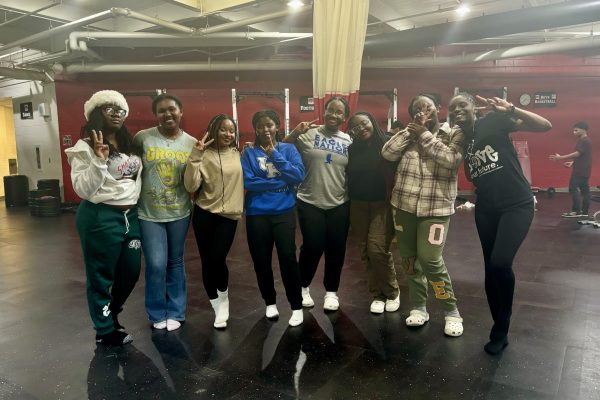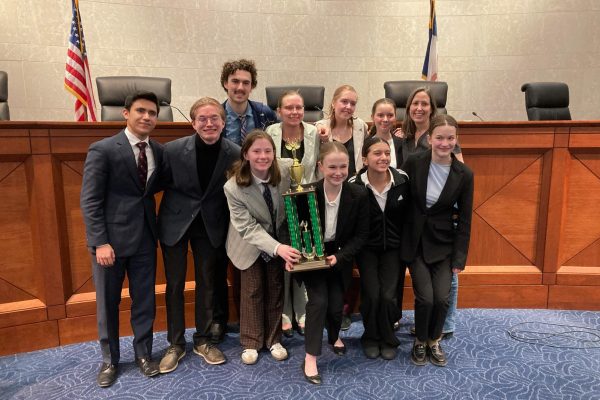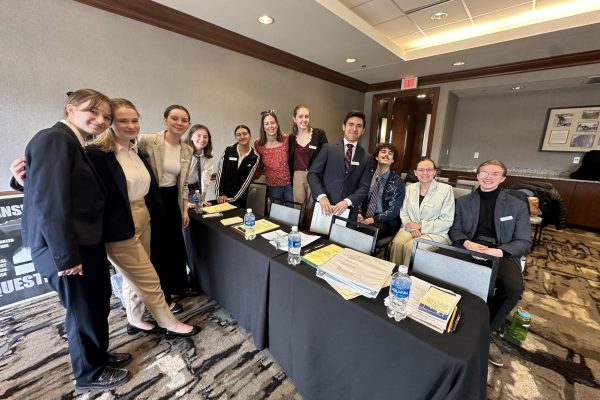Advocating for Animals at City High
January 10, 2018
The Animal Advocacy Club was started by Emme Kraus ’19 earlier this school year. She started this club to provide a voice for those who don’t have one. The club met for the very first time in September of 2017.
“During the club we have a variety of activities,” said Kraus. “We do presentations, kahoots, videos, and discussions.”
At the moment the main goal of the club is to pass a ban that would eliminate all animal mills in the Johnston county area.
Kraus is working with an informal community group to help this initiative move forward. She is also part of a group in the community that discusses the same issues. This is an informal organization that originally came up with the idea for the ban.
“They just let me know about [the ban] and I’ve been really trying my best to help,” Kraus said.
The ban the club is trying to pass would prohibit all animal mills from selling their animals and existing as a business.
“Right now there are two puppy mills in Johnson county and then Petland of course. So all of these stores would no longer be able to sell dogs or cats,” Kraus said.
The reason why Kraus and other club members want to pass this ban is to stop the breeding of animals in the conditions of an animal mill. A puppy mill or cat mill treats their animals in conditions often regarded as inhumane. In puppy mills it’s very common for animals to have such little space that they sleep in their own feces.
“Puppy mills and cat mills treat their animals awfully, they spend their lives in cages and rotting floors and starved and dehydrated and so we want to end that suffering,” stated Kraus. “We want to end this cruelty to animals.”
But Kraus’s passion hasn’t only started now, she has always been interested in the issue.
“For my entire life I’ve been really fond of taking care of animals,” said Kraus. “And speaking up for those who can’t speak for themselves.”
Kraus has two dogs herself. One which her family rescued, the other from a breeder.
“Breeders would be okay because we believe they’re a degree up from puppy mills,” said Kraus.
Dogs and other animals that are raised by breeders are often treated extremely differently than those in mills. In many cases, breeders take care of fewer dogs and run their businesses on a farm, giving the animals more space to roam. There are three puppy mills in Johnson County. Two with less than 150 grown dogs and one store that sells puppy mill dogs. Iowa puppy mills trap more than 16,000 adult dogs. And some of the worst puppy mills in the country are in Iowa. The ban Kraus wants to pass would prohibit the three puppy mills in Johnson county from selling their dogs.
Kraus and her fellow animal advocates started the process of creating this ban with nothing to work off of.
“There are a couple laws but they’re not strictly enforced and they’re not large enough to actually care for the animals in these areas,” said Kraus.
There is only one federal law regulating the selling and research of animals in the US: the Animal Welfare Act passed by Lyndon B. Johnson in 1966. This law prohibits unlicensed companies to sell or research certain domesticated animals. Having a license doesn’t prohibit one from treating animals inhumanly, it only forces you to keep them in conditions in which the animals will survive. For this law you must be USDA licensed; in Iowa commercial breeders must be state licensed by the Iowa Department of Agriculture and Land Stewardship (IDALS). In Iowa, breeders do not have to be licensed by the IDALS and USDA. And not all breeders have received state oversight. This leads to more legal inhumane breeding facilities. Kraus is hoping to change these laws for Johnson County.
“It’s been a long process trying to figure out what we’re going to do for this ban,” said Kraus. “We’re going to try and appeal to the supervisors of Iowa City and start from there!”





